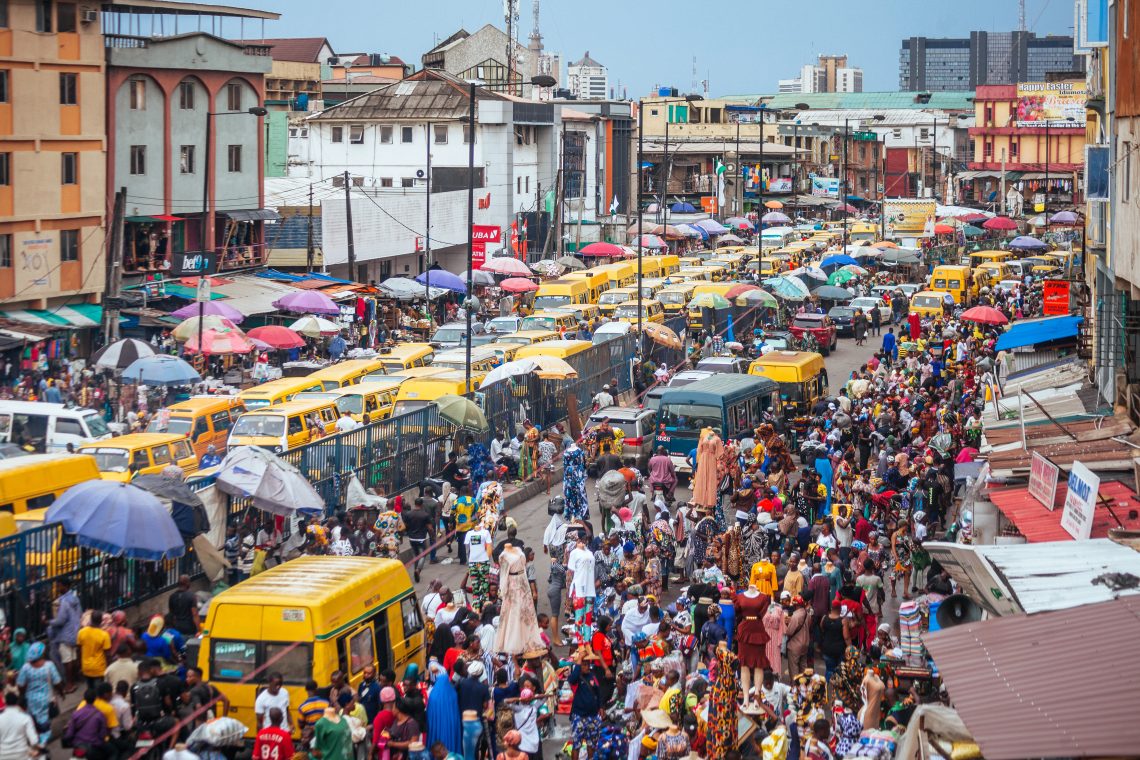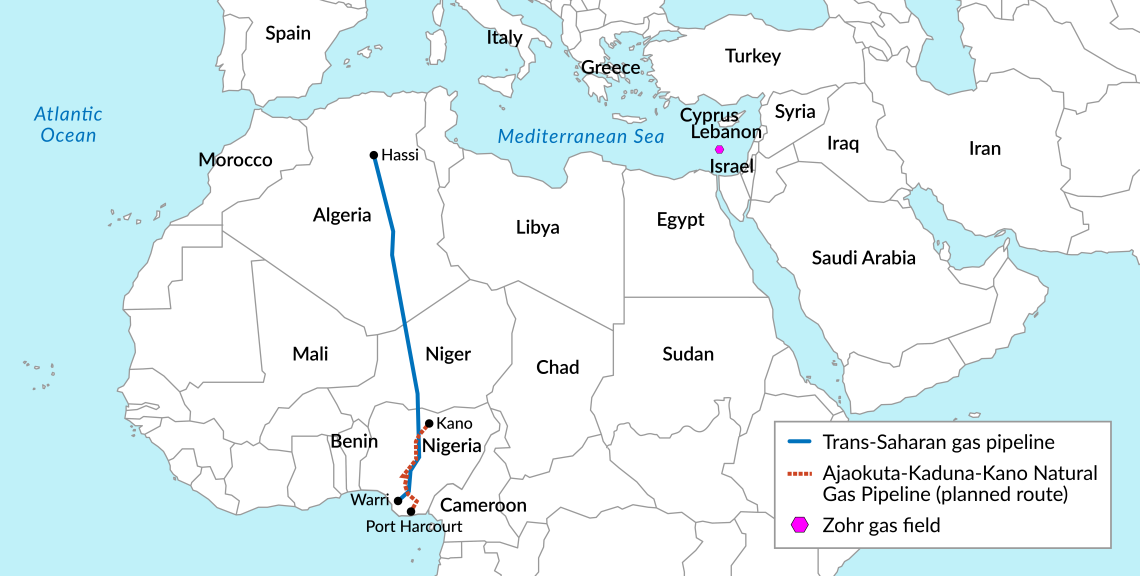Africa’s energy hopes and fears
Despite the worldwide impetus to replace fossil fuels with green energy, African countries are hoping oil and gas will remain in demand long enough for the continent to profit from its abundant resources.

In a nutshell
- African leaders are wary of renewable energy
- Recent oil and gas finds hold promise
- Security issues could scare away investors
In energy markets, volatility seems to be the watchword. Gas prices have dramatically increased in Europe. China has declared itself willing to “pay any price” to secure coal. Beijing has also joined the United States and other countries in tapping oil reserves to bring prices down. Africa, a continent that suffers from widespread energy poverty but that is also endowed with massive resources, will be affected by this turmoil.
High vulnerability
The uninterrupted availability of energy at an affordable price is a necessary condition for development. In Africa, energy poverty remains a major obstacle to growth. While it is home to 16 percent of the world’s population, the continent consumes just 3.3 percent of global primary energy. Not surprisingly, per capita emissions are estimated to be a fifth of the global average. Moreover, 600,000 of the 800,000 people estimated to live without access to electricity are in sub-Saharan Africa.
African economies are highly exposed to the inflationary pressures provoked by rising energy costs.
The main sources of energy on the continent are oil (42 percent), gas (28 percent) and coal (22 percent). While international pressure to reduce greenhouse gases is unprecedented, the worldwide fears caused by price hikes provided African countries with a strong argument to resist external demands. South Africa’s minister of mineral resources and energy has stated that the energy transition in Africa should be guided by reason, not fear. Nigerian President Muhammadu Buhari has argued that climate change will not be fixed by causing an energy crisis in Africa, noting that alternative sources are still unreliable and that the “new global race in lithium batteries” entails serious geopolitical risks. The African Energy Chamber has called for the boycott of companies and investors that discriminate against the African oil and gas industry.
Meeting Africa’s growing demand for energy will be hugely challenging. Fossil fuels are also key commodities across the continent. For countries like Angola, Egypt, Equatorial Guinea, Ghana and Nigeria, natural resources are a crucial source of export earnings.
On the demand side, African economies are highly exposed to the inflationary pressures provoked by rising energy costs, which affect mostly poor urban households where food and energy costs eat up most of the income. Some governments are reacting by introducing or reintroducing subsidies.
In South Africa, the threat of inflation and record fuel prices are compromising the post-Covid economic recovery. In Kenya, the government is subsidizing the oil industry to freeze prices. In Malawi, violent protests erupted over rising fuel, food, and cooking oil prices. Nigeria, which imports 80 percent of its petroleum products despite being Africa’s top oil producer, will soon replace the fuel subsidies that have been in place since the 1970s with monthly payouts for transport. In Sudan, where staple food prices in the short-to-medium term are expected to remain 200-250 percent above the five-year average, political instability will go hand in hand with inflation.
Old and new discoveries
This vulnerability contrasts with Africa’s abundant energy resources, both renewable and nonrenewable. While the green energy transition and the pandemic have affected the development of oil and gas projects in Africa, recent discoveries have rekindled hope for growth – especially now that many believe oil and gas will remain necessary commodities at least in the short term.
If critical infrastructure is put in place and pipelines expanded, Africa could become a key energy exporter.
The energy sector is also facing structural changes, as important legislation is under discussion in South Africa and Uganda. In Nigeria, after years of setbacks, the Petroleum Industry Bill was finally approved. In a country plagued by inefficiency and corruption, the bill represents a landmark improvement. It states that the Nigerian National Petroleum Corporation must become “commercially oriented and profit-driven.” The act also introduces dispute-resolution mechanisms between the government and oil companies, which will increase investors’ confidence.
In parallel to this restructuring, new players are emerging across West Africa as energy giants are stepping aside. This trend will allow smaller operators to enter the sector.
In April, Reconnaissance Energy Africa claimed to have made one of the biggest onshore finds in decades in its exploratory drilling in Namibia. Also, oil production in the Lake Albert Basin, Uganda, is expected to begin in 2025. The project foresees the construction of the $3.5 billion East Africa Crude Oil Pipeline to Tanzania and is being carried out by TotalEnergies and the China National Offshore Oil Corporation. Production capacity is estimated at 216,000 barrels per day.
Facts & figures
Untapped supply

Africa is home to 40 percent of the gas discoveries made in the last decade, with significant finds in Egypt, Mozambique, Nigeria and South Africa. Often described as a “transition” fuel, natural gas accounts for 23 percent of the global energy demand and almost a quarter of electricity generation. Some of these findings have prompted the development of key infrastructure, including cross-border projects that now benefit from the improved trade and investment environment thanks to the African Continental Free Trade Area.
In Nigeria, the government has launched the “Decade of Gas Development” program (2021-2030). One of the key projects is the Ajaokuta-Kaduna-Kano natural gas pipeline, financed by China as part of the Belt and Road Initiative (BRI). To be completed by 2023, it will be connected through Niger to the Trans-Saharan gas pipeline that links Nigeria to Algeria – a gas gateway into Europe. Egypt has become a net exporter of liquefied natural gas (LNG) after major discoveries in the Zohr field. In Mauritania and Senegal, BP is developing a new gas field, which if commercially viable, could supply up to ten million metric tons of LNG per year.
Scenarios
Under any scenario, China – which has recently become the world’s top LNG importer and the second-largest oil consumer – is expected to play a key, if discreet, role. According to the China-Africa Research Initiative, Beijing has invested approximately $39.2 billion in Africa’s energy sector over the last two decades. China will maintain its presence, either through direct involvement in exploitation operations or through strategic alliances with other companies and funding critical infrastructure under the BRI. While Beijing has rolled back its coal production in Botswana, Mozambique and Zimbabwe, the operations could still be revived. China – along with India – was responsible for a last-minute change in the COP26 commitments, which replaced the “coal phaseout” target with “coal phasedown.”
Scenarios in the short to medium term will be influenced by the evolution of the global economic trajectory and its impact on oil and gas prices. With weaker growth and another wave of restrictions, supply could soon outpace demand. However, once restrictions ease prices could skyrocket once again.
In the medium to long term, however, patterns of energy demand and supply in Africa will be determined by the continent’s demographic and economic development. The energy transition and the extent to which it will affect the exploitation of hydrocarbons will also play an important role. During COP26, African leaders were vocal about their fears that the green energy revolution would come at a high cost for developing countries. These concerns were especially acute given the rising gas prices. Renewable energy is seen as too unpredictable to provide sufficient energy security for the continent, whose demand is expected to grow rapidly.
Even under a less likely scenario of accelerated energy transition, with global oil demand peaking ahead of 2030, Africa’s oil industry would still benefit from a strong, if short, momentum. For countries like Angola, Nigeria, or the Republic of Congo this would offer a narrow window of opportunity to overhaul their energy sector and economy.
Energy demand in Africa is growing rapidly; the continent is expected to account for 25 percent of the world population by 2050. Energy needs will be driven by rapid urbanization, industrial production, transportation and construction. Oil will likely remain an important part of the overall energy mix. In this case, the only way for countries to reduce vulnerability to price shocks will be to increase energy efficiency and improve refining capacity while creating regional routes for energy trade. Nigeria, where the import of refined petroleum costs between $7-$10 billion per year, is already implementing this strategy with the Dangote refinery project near the megacity of Lagos.
Commercially viable projects could be developed in Mauritania, Mozambique, Senegal and Tanzania. If critical infrastructure is put in place and pipelines expanded, Africa could become a key energy exporter. Europe would benefit greatly from this scenario, as it would decrease its dependence on Russia.
Security will also play a major role in how Africa’s oil and gas industry develops. This became clear in the case of Mozambique, where TotalEnergies was forced to suspend its activities following a wave of terrorist attacks in Cabo Delgado. Rwandan forces have stabilized the region, but the incidents have dramatically increased the perception of risk associated with such ventures.
In the Niger Delta, tensions will likely remain despite the approval of the Petroleum Bill. Local groups demand that companies pay 10 percent of their oil revenues to communities, and the bill sets this amount at only 3 percent. Security risks will also stay high in Chad, where clashes between the military and rebel groups will likely persist.



